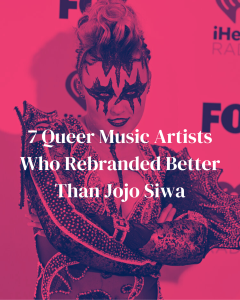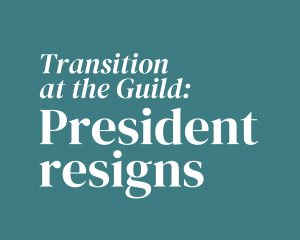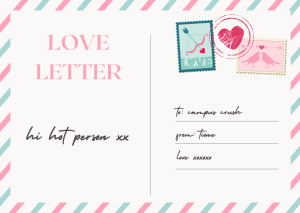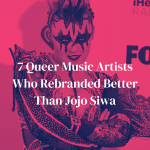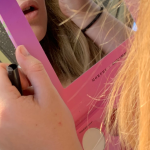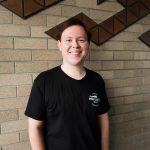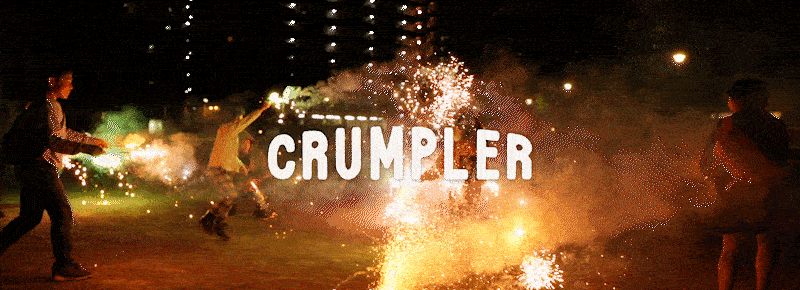In this interview, Glass catches up with Maggie Mackenzie from the One Woman Project to talk volunteering, feminism, and whether man-hating is toxic.
Ciaran
Tell me about the One Woman Project.
Maggie
So, the One Woman Project is an intersectional feminist organisation. And it’s Australia’s fastest growing youth-led non-profit as well. As an organisation, we’re committed to fighting gender inequality and social injustice through education. We do a lot of gender justice workshops, and we try to make sure that the content that we’re producing acts as tools for youth to combat sexism.
Ciaran
What’s the go with youth-led organisations? Why are they important? How is it different to having another (not youth-led) organisation does something similar?
Maggie
We’re not exclusively youth-led, so we have quite a lot of mature volunteers involved, which is great, because they bring their own experience to the organisation. I think it’s important to have youth in leadership to an extent, or at least a really big representation of us, because we’re the representation of who are fighting for gender justice at the end of the day.
I think it’s really encouraging and inspirational to see youth activists. Like I’ve seen it a lot in the climate activism, strikes and stuff. And I think it’s really empowering to see all these young people coming out and taking a stand and fighting for their future.
Ciaran
It’s a real shift from traditional structures, where you see a lot of older people in power. I feel like it can be hard for young people to get into those structures. So, it’s interesting to see young people building their own, new structures.
Maggie
We’re also a non-hierarchical organisation. We believe in self-management – there are no managers, there are coordinators who act like a support network. We’re all about like decolonization and we’re anti-capitalist as well. So, a lot of that comes through in the way that we work. And I think establishing an environment where you are non-hierarchical, anti-capitalist, and focused on decolonisation makes for a nice space for young people to come into a feel accepted.
Ciaran
What’s your role within the OWP and how did you get involved?
Maggie
My role is the national co-director of online engagement. I oversee all the online materials: social media, blogs, and publications.
I was in the middle of an isolation period. I was really wanting to do something with my writing. I felt like I wasn’t really going anywhere with my writing. And I was writing about web design stuff. And then it just wasn’t, I was like, I’m not doing anything. It was, like copywriting thing, which was an amazing experience, but it just wasn’t what I wanted to be writing about. And then I came across OWP and I loved their values. And I just really just wanted to learn more. Like, I feel like I didn’t know enough about feminism and gender justice. I wanted to get involved and challenge my own thoughts.
I never got involved with social justice initiatives when I was in high school, which I wish I did, because I feel like it would have spearheaded into this space a bit quicker. I hadn’t really had much experience with volunteer organisations until this.
Ciaran
Can you tell me about how the organisation uses the acronym ‘OWP’?
Maggie
We’ve been starting to use the acronym ‘OWP’ more recently, rather than ‘One Woman Project. We’ve been re-evaluating the organisation’s name, and we’ve had a lot of questions as well about the name ‘One Woman Project’ and whether or not that’s inclusive of everyone or whether it’s still representing the gender binary. I don’t know if there’s going to be bigger conversations around rebranding in general, and whether or not because I know we’ve had a couple of collabs with other organisations who have recently changed their name to make it more inclusive. It’s an ongoing conversation.
Especially because the whole team isn’t just made up of women. We have a lot of non-binary team members, and we also have a couple of men on the team as well.
I think that that shows like one of our values is like continuous learning and like making sure that we’re can really like holding ourselves accountable for what we’re actually doing in the community.
Ciaran
You’ve mentioned that OWP is an intersectional feminist organisation. I wondered if you can tell me a little bit about what your experiences have been with ‘white feminism’?
Maggie
To be honest, I’ve actually learned so much about it since I got involved with OWP. When I joined the organisation, I feel like there was so many aspects of feminism I knew nothing about. Looking at the ways that I had been enacted white feminism in my own life was really interesting. And I realised that I could see it in all the stuff that we consume, like books and TV, and how much they really portray white feminism.
I think learning about white feminism also means looking at movements like the suffragettes who were such an important part of the feminist movement, and acknowledging that they were not intersectional in any way. I think acknowledging white feminism is so important, because I think there have been so many movements that just don’t acknowledge the different experiences of minority women.
Ciaran
What are your thoughts on young people being involved in volunteer work?
Maggie
I think it’s great. I think it’s sad that a lot of people don’t have enough time to commit to volunteer organisations because of capitalism. It’s hard to balance everything. I’ve definitely struggled balancing it all this year. I’ve taken on this role – I’m doing like 10 to 15 hours a week with OWP, studying for my Masters part-time and trying to run my own business as well. So it’s full-on but we’ve also got some of the girls in the team who are studying for their PhDs and are very busy but still doing so much work for this organisation.
Ciaran
What do you think of man-hating?
Maggie
Not here for it. I think that there is a misrepresentation of feminism that it is man-hating, and that if you identify as a feminist, you must hate men, which is just not true. Feminism is all about equality for all genders. We’re trying to bring everyone up to the same level.
Ciaran
I’ve just noticed amongst my friends, we tend to make casual comments like ‘Ugh, men!’ everyday. And sometimes I wonder about whether we’re being fair? I’m pretty sure we’ve made comments like that to each other – you and me.
Maggie
Yeah, but I think there’s a difference between man-hating and calling out men’s privilege. I think we’re well within our rights to call out mansplaining and all the stuff that women have been oppressed by for years and years.
Ciaran
What have you learned from working with the One Woman Project?
Maggie
So much. I’ve learned so much. I’ve learnt so much about intersectionality that I really didn’t know before, particularly like different facets of feminism. I’d never really considered disability activism to be a part of feminism, but it’s such a key part of intersectionality. I’ve really wanted to challenge my own thoughts and internalised misogyny. Which I think is really important, because it’s like, if you’re not challenging yourself, how can you expect to challenge other people?


